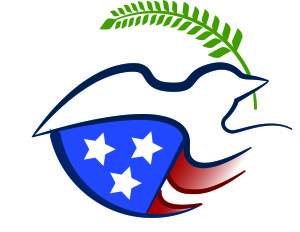Why preserve the Peace Corps?
A good friend recently asked me: “Why preserve the Peace Corps when no one cares or has even heard about it?”
In this new administration where there is talk of cutting government departments and programs, many RPCVs are concerned about what will happen to the agency. Once before, under the Nixon Administration, the agency was cut and smothered into ACTION before being rescued by President Carter and returned to its lawful place as a separate agency.
I want to write an article about why the Peace Corps is valuable to Americans and the world. I was hoping you might have specific examples to send me and give me permission to quote your name and years and country of service. Send your reply to: jcoyneone@gmail.com
Here are some topics I’ve thought about, and you may have other issues and ideas to contribute. Thank you for your help. Tell me your story.
- Most foreign leaders when visiting HQ have said with gratitude to Peace Corps Directors, “I was taught by the Peace Corps.” For all of these dignitaries, a Peace Corps Volunteer was a major step in their education.
- President Carter said Peace Corps Volunteers reduced “the animosity of poverty-stricken people around the world toward America.”
- Many RPCVs have lasting friendships with host country families that would never have been possible without their service overseas.
- Thousands of dollars have been generated by RPCVs for developing in their host countries, endless projects from libraries to medical help have been funded by RPCVs.
- Peace Corps Volunteers have returned home and gone onto graduate school and furthered that studies, adding “international” to whatever their career, from education to public health.
- The Peace Corps experience we will all admit enlarged our view of the world and taught us both humility—we don’t know that much!—and also pride in America for at least the ‘good’ our countries is trying to do in the world.
- RPCV authors have added to world literature with their memoirs and novels and poetry focused on the countries where they lived and worked as PCVs.
- Individuals and groups of RPCVs have sponsored scholarships for their students to attend colleges in the United States and earn advanced degrees and skills that they have taken back to their home country.
- RPCVs have continued to work for America as Foreign Service officers and in other international organizations around the world.
- To this day, no matter when or where we were a PCV, the name of our host countries jumps off the newspaper when something happens in our host country. We want to know. This nation was once our home.
John Coyne

We can ask
WHAT HAVE WE GOT?, WHAT HAVE WE DONE?, WHAT CAN WE DO?
until we are blue/red/white in the face
until the fear comes in with WHERE CAN WE RUN?
What might be a core sample of the sediment we rest upon?
I know some will pop back with a “stool sample” BECAUSE
they have no answers and want to deflect the questions
trying to beg-off with muttering something I recently overheard
on the Geary 38 line here in soggy San Francisco —
a harried woman of uncertain age exasperatedly responding to her phone:
‘YOU DON’T KNOW HOW MANY THINGS I HAVE TO GET IN MY HEAR EVERY DAY”.
In a nation (ours) where our President seeks to have the world
stopped for his whims and where politics silence illusion and science
are being gamed to upset the system, what we get is
the putting of something across. No wonder, our leaders
are metaphorically turning to the their ukuleles, banjos, fiddles,
mandolins, guitars, lutes and stringing us along in between
pounding their steinways, and dissembling with gassy untruths.
What I know is that the sentiment and thought of my young years
brought forth a shining hope in the Peace Corps —
that it was just one thing among others goo too, and that it must persist
or we will lose our nations’s soul AND HOPE will wear a wooden coat
and become dormant. In the Penguin Dictionary of Symbols the figure 8
is given as the “cycle of change and rebirth for the individual”.
It is a mobius strip that is conjectural though not proven
but something I hang onto, me being in now my 80th year.
It is hope and hit is persistence and it encompasses resistance
and renewal. Keep that faith among all the ANDs and the BUTs.